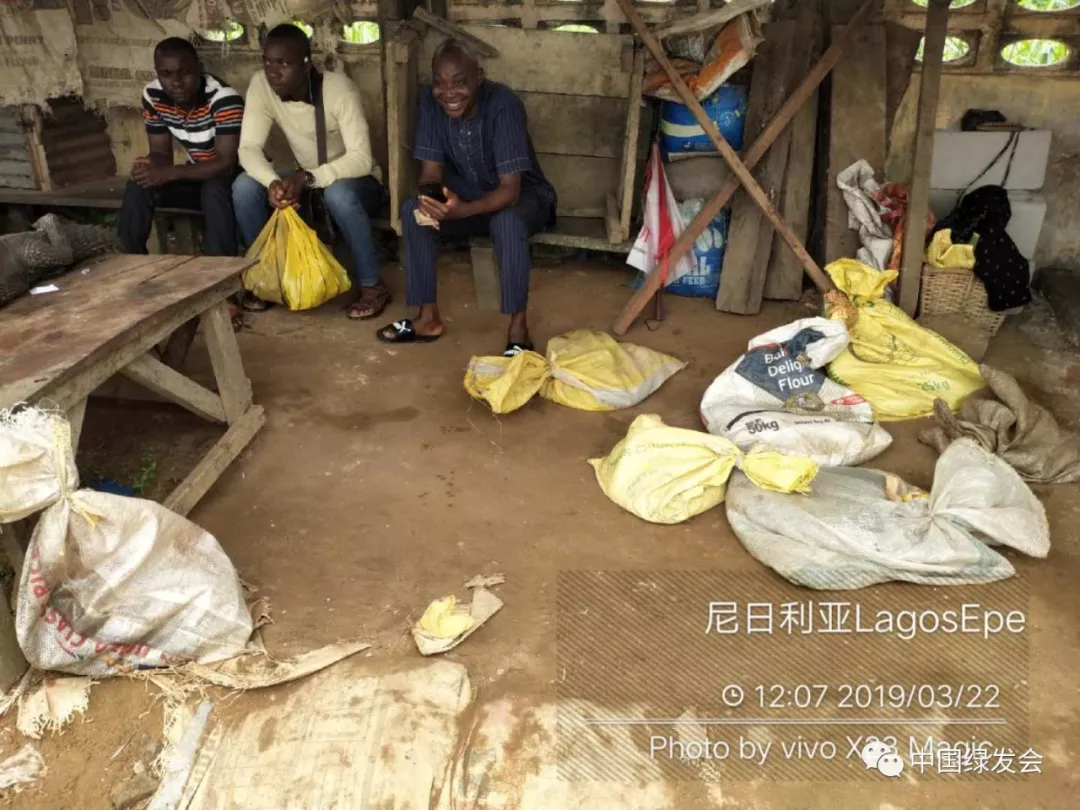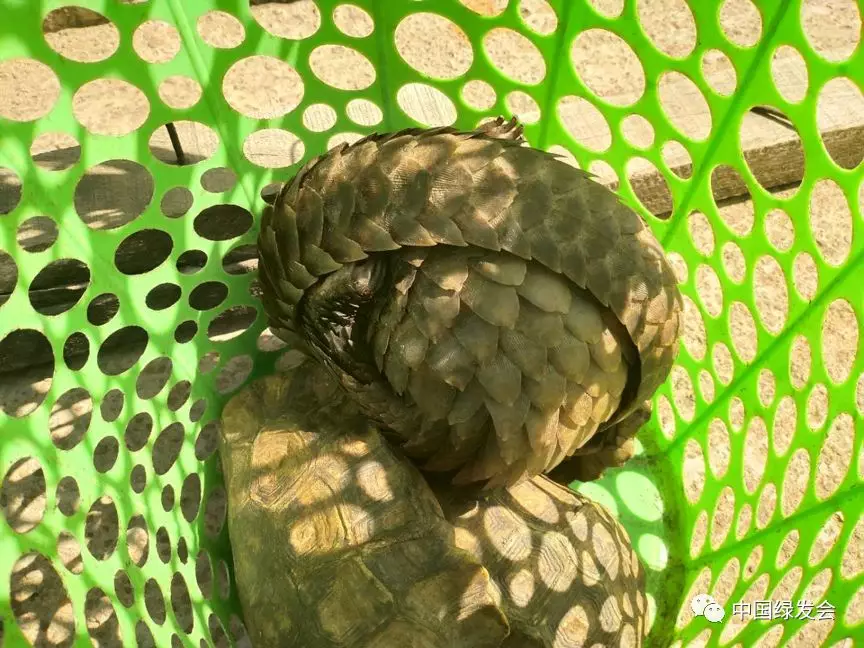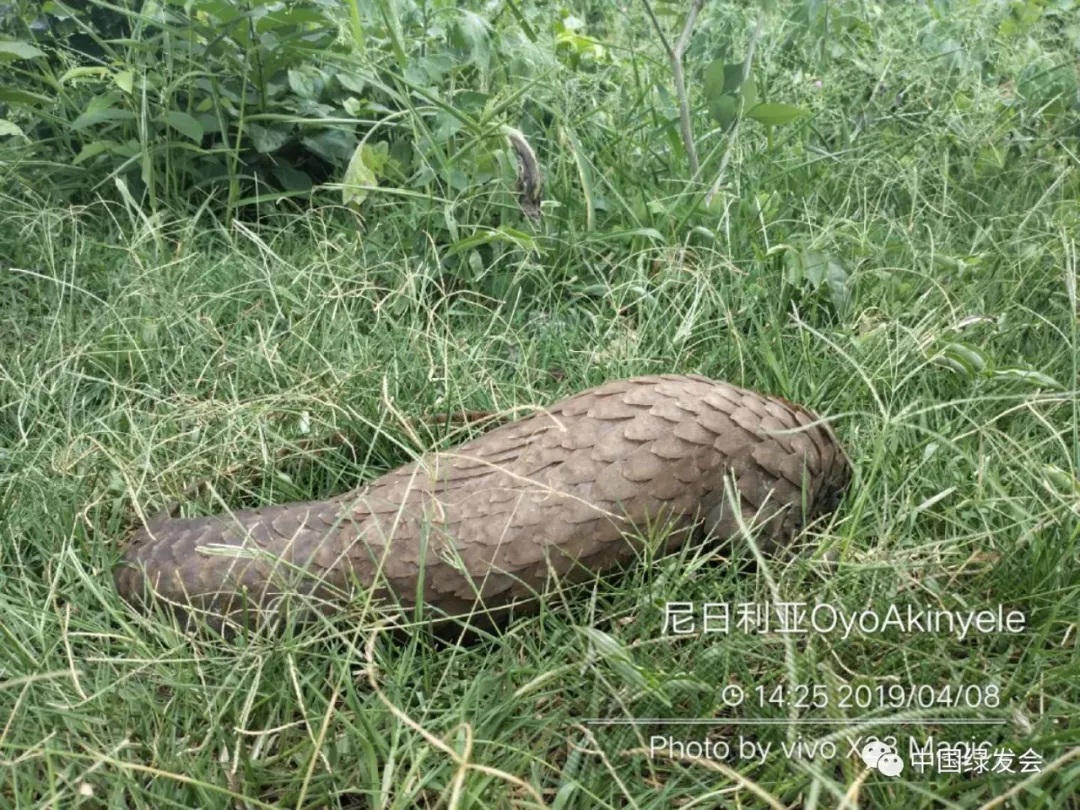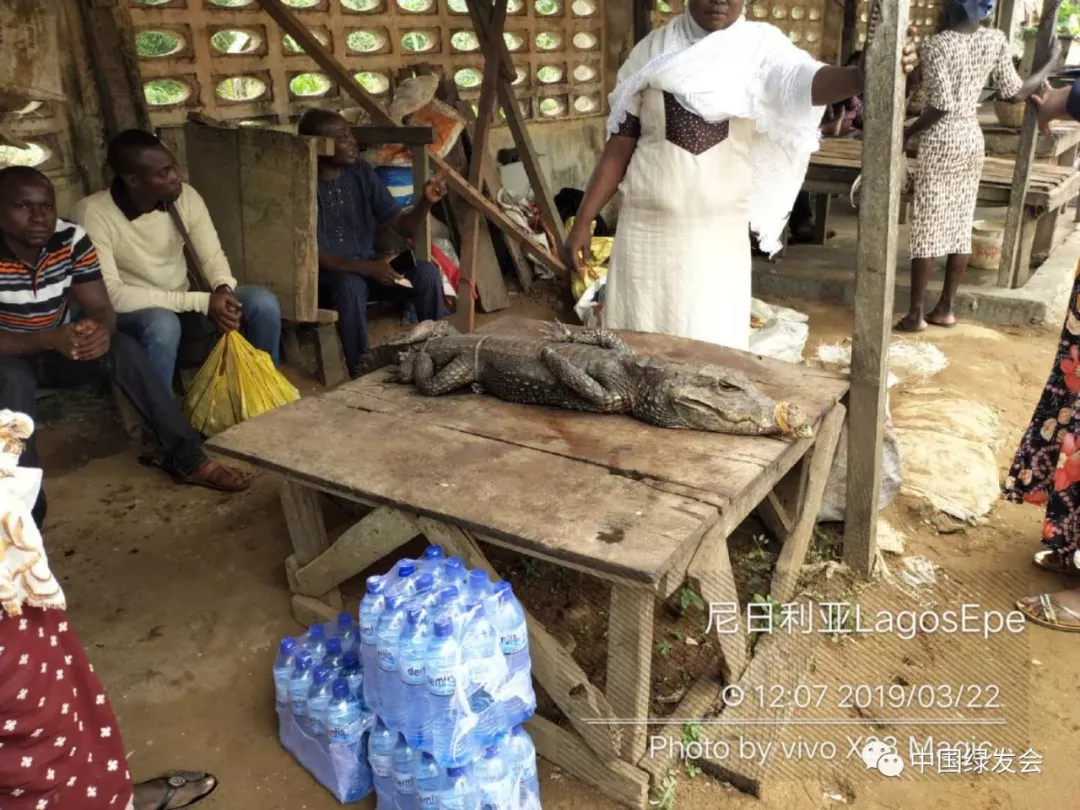From the end of March to the beginning of April this year, a volunteer of the CBCGDF, African Warrior, flew to Nigeria alone from a city in southern China to conduct a field survey on pangolin protection. On April 19, the "African Warrior" gave a detailed introduction to the details of the investigation at the conference.
The reason for choosing Nigeria is that since 2016, dozens of cases of pangolin and its products smuggled have all been pointed to Nigeria. In 2018, a media report: $900m worth of Pangolin seizures made in Nigeria in 2018. What's wrong with Nigeria?
The following is the oral account of the local survey conducted by "African Warrior" in Nigeria.
I surveyed many markets. One of the most striking and popular markets on Sunday is the “small fishing village”. Many Chinese people came to buy pangolins, which are in short supply. How many do they sell? Two or three pangolins were sold every time.
After the Chinese bought it, they mostly used it for nourishing soup. I asked the Chinese who ate pangolins, "How about this soup?" They answered, "It tastes bad, but it's nutritious." Or they answered, "It can enhance immunity and fight cancer." Others said that pangolins are eaten because they are scarce and cheap in China. That is to say, they eat pangolins to show off their identity.
I went to this small fishing village market twice in all. The first time I went was in the afternoon. When they saw me, they gathered around the market at that time. "Today's pangolin has been sold out." "Yesterday was Sunday, we sold five pangolins..." They can sell 10 pangolins per month here. Pangolins are sold out, but they will continue to sell other wildlife in the market, such as pythons and lizards. It can't be farmed. Because the local people are usually underfed, it is impossible to have extra food to feed wildlife.
Another market I've been to is called "Morocco Market". As long as they saw Chinese people coming, they will follow behind and keep asking, "Do you want pangolins?" "If you want, we can deliver it to your door."
In the "Morocco Market", there are local people sell pangolin scales. 1kg pangolin scales need 10,000 nairas, about 200 RMB. He has also stressed that he has two living pangolins. I want to buy them and then let them go.
Early the next morning, the young guy really sent two living pangolins. A total price of 30,000 nairas, about 600-700 RMB. He said, "we still have other wildlife." In addition to pangolins, pangolins scales, rhino horns, ivory and so on. These things are usually sold to Chinese people, and the Chinese buy them and smuggle them into China. The price difference is very high. For example, the price of pangolin scales in Nigeria is 95 RMB per kilogram, but the domestic price is about 1500 RMB per kilogram, the price difference is nearly 16 times.
The local temperature is very high, usually 35 - 36 degrees. I wanted to buy two pangolins that were released. But they died soon. I felt very sad and I had to find someone to help bury them. In the eyes of local people, pangolins are eaten and traded by Chinese people, so they are usually sold only to Chinese people.
I once asked a young guy, "Do you have pangolin scales?" He said that it could provide 200-500kg of pangolin scales per month. I'm surprised how many pangolins will be lost if so many scales are supplied. It is understood that a pangolin usually weighs only 2-3 kg. How many pangolins have to be hunted for such a large quantity of scales?
In Lagos, Nigeria, it is close to the Bay and relatively convenient for shipping. There are many Chinese enterprises and many Chinese employees here. They usually work from Monday to Friday and go to the market on weekends to buy pangolins. If the leaders of local Chinese enterprises take the lead and call on employees not to eat pangolins, they can predict how many pangolins will die each year. I met the general manager of a Chinese-funded enterprise in Nigeria, who admitted that he often eats pangolin soup because "this soup can enhance human immunity". He also asked me if I wanted to eat and he could invite me to eat. Chinese eat pangolins as casually as they eat a chicken or a duck. If we do a good job of education for Chinese enterprises, we can surely save many pangolins every year.
As for the protection of pangolins or other wildlife, from the scene, it is totally neglected to the protection of pangolins or other wildlife. In the “small fishing village” market, I saw the police standing at the entrance of the market, but he ignored the sale of wildlife in the market. Then I asked my Chinese friends who lived there. The department responsible for wildlife management was the forests and environment ministries. The implication is that these departments responsible for management are also free from illegal hunting wildlife.
Other reminders and warnings from government management departments are also quite lacking. Since I got off the plane, I haven't seen a billboard at the airport advertising pangolins, such as "Protect Pangolins, don't Eat Pangolins", or "Protect Wildlife" or "Wild Animals are Friends of Human Beings". There were no similar reminders or warning signs in the Immigration Bureau, Visa Office, Immigration Department, etc. This makes the Chinese people living in the area generally believe that it is normal and not illegal to eat pangolins.
In Nigeria, what I saw is that only Chinese people are eating pangolins and doing illegal smuggling of pangolins. If Chinese enterprises and employees in Nigeria can take the lead in not eating pangolins, the pangolins here would be safe. I hope Chinese enterprises in Africa can take the lead and declare that they don't eat pangolins. Let's not do anything wrong with our offspring, because after eating them, our offspring can only see pangolin in museums.





(Photo credit: CBCGDF volunteer "African Warrior")
Original Chinese article:
http://www.cbcgdf.org/NewsShow/4854/8362.html
By / Li Xue
